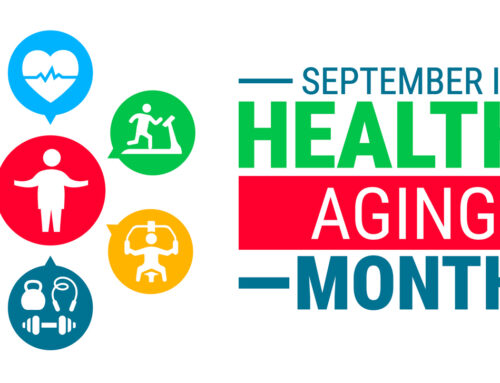Educate yourself, listen, and seek professional help
Though it may come as a surprise to some, the likelihood of becoming clinically depressed decreases with age. However, if a senior loved one become depressed, the consequences become more severe – including an increased risk of impairment performing daily functions, suicide, and the likelihood of physical illness. More than half of depressed older adults experience their first episode after the age of 60.
When an aging senior is diagnosed with clinical depression, the responsibility of the caretaker becomes a lot greater than simply providing emotional support. Here are a few things you can do to effectively help a loved one with depression.
Start by educating yourself about depression
Providing support to a loved one with depression begins with educating yourself as much as you can on the condition – even before they are actually diagnosed. The quicker you are able to identify that a loved one is depressed, the quicker you can work towards combatting the disease.
Research the symptoms of depression and learn to identify potential warning signs of the condition getting worse. Once you understand that depression is an illness that can’t be cured simply by having a good day, you can begin to fathom what your loved one is going through.
It’s important to recognize that depression has a wide range of symptoms and emotions that can evolve. It is not a static illness, and each day can present a new challenge. As a caretaker, educating yourself on what to expect is the first step towards understanding your loved one and getting them professional help.
Depression responds well to compassionate listening
While you should educate yourself on the illness, you should avoid sharing all you’ve learned with your aging senior. He or she might be overwhelmed if you point out every possible symptom of depression. Rather, practice compassionate listening – meaning listen more than you speak.
Give your loved one an outlet for expressing emotions and let them feel heard and understood. Use phrases such as “tell me what I can do to help” and let them tell you how you can provide support, rather than assuming that you know what they need.
If your loved one feels like internalizing their thoughts, let them. Sitting in silence and using nonverbal methods of communication to offer support can sometimes be more effective than forcing a conversation and trying to find the right thing to say.
Casual advice and tough-love should be avoided – seek professional help
All the same, it’s important to avoid phrases like “this will pass,” “try to think positively,” and “we all feel this way sometimes.” Again, depression is an illness. It won’t necessarily pass, and not everyone feels the way a depressed individual does. Offering this type of advice or attempting the “tough-love” approach is not the right way to support someone with depression.
When someone we love is going through a tough time, we are compelled to offer words of wisdom and try to force them to “snap out of it.” When it comes to depression, it’s not that simple. Focusing on listening and asking your loved one to tell you what they need will be much more effective than telling them what they need.
And when you’ve come to suspect that your loved one is suffering from depression, encourage them to see a physician. Both medications and therapeutic options are available to combat the disease once a professional diagnosis is achieved.
Supporting someone with depression means giving them a say in their medication management
When a loved one is depressed, especially as they age, maintaining a strict medication schedule is essential. With the increased risk of suicide that comes as a symptom of the condition, it’s important that there is a process in place for tracking and monitoring the medication by someone in addition to the person taking the medication (a family member, friend, or professional aide).
In addition, your loved one might not like the side effects of some medication, especially when they first begin taking it. Here’s another example of when compassionate listening comes into play; you don’t know how the medication makes your loved one feel, so it’s important to take their frustrations seriously. If they want to transition off a medication, switch doctors, or want an additional medication to help with anxiety or lack of sleep, explain that they (and you) can’t make these decisions yourself. Schedule an appointment with a physician to address their concerns.
Helping someone with depression doesn’t mean it all falls on you
While you can’t cure depression, you can help someone suffering from it. But that doesn’t mean that it all falls on you. If your loved one requires help from a home health aide – whether it’s with medication management, daily chores, or companionship, FirstLantic is here to help.
Since 2000, FirstLantic has been providing the highest level of home healthcare services to families dealing with depression and other common illnesses in Broward, Palm Beach, St. Lucie, Indian River, and Martin Counties. Our home healthcare aides offer hourly and daily services to provide the ideal level of care for you and your loved one. Contact us 24/7 at 1-877-618-3624 or through our online contact form to learn more.
 AVAILABLE 24 HOURS A DAY/7 DAYS A WEEK
AVAILABLE 24 HOURS A DAY/7 DAYS A WEEK Careers
Careers






